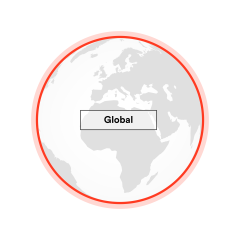Reach marginalised groups

Reach marginalised groups
Case Studies

The Count Me In! (CMI!) Consortium is a coalition of intersectional feminist groups that have supported Spotlight Initiative and its civil society partners since 2017. Their focus has been on helping Spotlight Initiative to centre in its efforts women, girls and trans, non-binary, and intersex people who are most marginalised, and often face disproportionate rates of violence. Through consultative processes, engaging hundreds of women’s rights and feminist activists, the CMI! Consortium has successfully lobbied to strengthen feminists’ and women’s rights activists’ role in Spotlight Initiative and to strengthen the ways and processes through which the it works with these key stakeholders.
In 2018, the CMI! Consortium shared 18 feminist recommendations developed by over 600 feminist and women’s rights advocates with Spotlight Initiative. This motivated ambitious funding targets for Spotlight Initiative to ensure funding reached civil society and, in particular, local women’s rights organisations working to end violence against women and girls in their communities. Tracking this funding allows Spotlight Initiative to highlight just how transformative the impact of providing quality funding directly to civil society is to the lives of women and girls.
The CMI! Consortium’s support to Spotlight Initiative phased out in December 2020, once there was a structure in place through the Civil Society Reference Groups, at global and programme level, to ensure the voices of feminist activists were heard.



Representatives of women’s rights groups and human rights-based civil society organisations - including those representing groups facing intersecting forms of discrimination- have been engaged in shaping Spotlight Initiative from its inception in governance and advisory roles. Spotlight Initiative teams have established Regional, National, and Global Civil Society Reference Groups (CSRGs), engaging diverse women’s rights and feminist activists as well as subject-matter experts and marginalised groups. CSRGs advise on and monitor implementation, recommend changes, and hold Spotlight Initiative accountable to its commitments.



Spotlight Initiative has supported the review and reform of legal systems and frameworks to ensure that root causes, consequences and risk factors of violence against women and girls are comprehensively addressed and the specific needs of individuals facing intersecting forms of discrimination, such as LGTBQI+ individuals are effectively addressed.
In Liberia, Spotlight Initiative conducted a legislative review of the Inheritance Law, Rape Law and Domestic Violence Law with government officials and CSO representatives to ensure the inclusion of a comprehensive approach to targeting all forms of violence and discrimination. The LGBTQI community were fully involved in this exercise and able to identify gaps, propose amendments or draft new laws to address their concerns.
In Mozambique, Spotlight Initiative conducted an assessment of the Instituto do Patrocínio e Assistência Jurídica’s (Institute for Legal Assistance and Representation) capacity to provide justice services, assistance and legal representation to women and girls and other vulnerable groups, such as LGBTQI, Gender Non-Conforming (GNC) people, people with albinism and people living with disabilities.
In Belize, Spotlight Initiative conducted a study to evaluate the effective implementation of family law legislations and has launched a comprehensive review of existing policies and protocols on the response to sexual violence in the security forces, including in context of emergency. These processes have been conducted in close consultation with survivors of violence against women and girls including those facing discrimination due to sexual orientation and/or gender identification.







